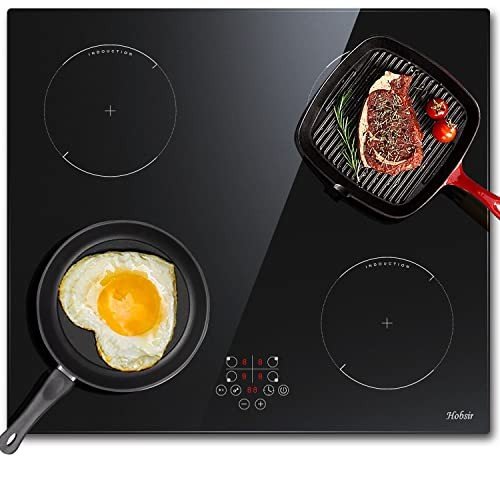Understanding Cookers and Hobs: A Comprehensive Guide
Cooking is an essential element of every day life, and the development of kitchen appliances plays a significant role in how effectively and effectively individuals prepare their meals. Among these devices, cookers and hobs are two of the most important instruments discovered in modern-day cooking areas. This article dives into the differences between cookers and hobs, examines their numerous types, and uses insights on their functions, upkeep, and selection procedure.
What are Cookers and Hobs?
Cookers
Cookers are thorough kitchen devices designed for cooking jobs, typically combining an oven and a hob. They come in different setups and types, catering to varied cooking requirements and preferences.
Hobs
Hobs, on the other hand, are more concentrated home appliances primarily utilized for boiling, frying, and other stovetop cooking techniques. Hobs can be standalone systems or an integrated part of larger cookers.
| Feature | Cookers | Hobs |
|---|---|---|
| Function | Integrates oven and hob | Stovetop cooking just |
| Style | All-in-one system | Different unit or integrated |
| Types | Electric, gas, double fuel | Gas, electric, induction |
| Setup | Enables for more flexibility | Built into the counter top |
| Rate Range | Generally higher | Differs commonly |
Kinds of Cookers
1. Electric Cookers
Electric cookers utilize electricity as their main source of power. Fan Oven Sales include an integrated oven and numerous cooking zones on the hob.
Benefits:
- Even heat distribution
- Available in numerous designs (e.g., freestanding, integrated)
2. Gas Cookers
Gas cookers operate on gas or liquefied petroleum gas (LPG). They use instant heat control, making them a preferred amongst professional chefs.
Benefits:
- Instant heat modifications
- More economical functional expenses
3. Dual Fuel Cookers
Double fuel cookers combine the heat of gas with the effectiveness of electric ovens. This setup enables for the very best of both worlds, providing control and consistent results.
Advantages:
- Flexible cooking alternatives
- Accurate control over stovetop cooking and baking
4. Range Cookers
Range cookers are bigger and more powerful than basic cookers, including several ovens and hobs for comprehensive cooking tasks.
Benefits:
- Ideal for big households or cooking for occasions
- Offers various cooking options in one appliance
Kinds of Hobs
1. Gas Hobs
Gas hobs are favored for their fast heating and strong flame, making them excellent for scorching and stir-frying.
Advantages:
- Instant heat and control
- Compatible with any kind of cookware
2. Electric Hobs
Electric hobs heat up utilizing electric coils or glass-ceramic surface areas, offering a modern look and effective cooking.
Benefits:
- Easier to clean
- Uniform surface suitable for numerous pots and pans
3. Induction Hobs
Induction hobs utilize magnetic fields to heat pots and pans straight, providing quickly and energy-efficient cooking.
Benefits:
- Safe (cool surface after eliminating pots and pans)
- Energy-efficient and exact
4. Strong Plate Hobs
These traditional hobs use strong electric plates that warm up slowly.
Benefits:
- Rugged and resilient
- Typically more affordable than other types
Key Features to Consider
When selecting a cooker or hob, several features must be considered:
- Size and Space: Consider the size of your kitchen and the quantity of workspace required.
- Cooking Style: Choose based on choice-- gas for control, induction for performance, etc.
- Efficiency Ratings: Look for energy-efficient designs to lower utility expenses.
- Reduce of Cleaning: Smooth surface areas help with easy upkeep.
- Security Features: Automatic shutoff, flame failure devices, and child locks improve security.
Upkeep Tips
Preserving cookers and hobs lengthens their lifespan and guarantees safe operations.
- Regular Cleaning: Wipe down surfaces after usage to prevent buildup.
- Check Seals: Check oven door seals routinely for wear and tear to preserve performance.
- Service Regularly: Schedule professional servicing at least once a year.
- Suitable Cookware: Use cookware appropriate for your hob type to prevent damage.
Regularly Asked Questions (FAQs)
What is the distinction in between a cooker and a hob?
A cooker integrates an oven and hob in one system, while a hob is usually a standalone home appliance for stovetop cooking.
Do I need a professional to install a gas cooker or hob?
Yes, professional installation is advised for gas home appliances to ensure safety and compliance with regional regulations.
Can I use any type of pots and pans on induction hobs?
Induction hobs require magnetic cookware. Stainless steel or cast iron pots work best. Non-magnetic materials will not warm up.
Are electric cookers more energy-efficient than gas cookers?
While both have benefits, electric cookers tend to be more energy-efficient overall, specifically with modern, high-efficiency designs.
How frequently should I clean my cooker or hob?
It is best to clean them after each use and carry out a comprehensive cleansing weekly to prevent accumulation and residue.
Comprehending the distinctions, features, types, and maintenance pointers for cookers and hobs is essential for any home cook. By choosing Hobs Sale to their cooking requirements, users can enhance their cooking experience, making meal preparation an effective and enjoyable task. Whether going with the instantaneous control of gas or the sleek performance of induction, picking the appropriate cooker or hob can result in a notably boosted kitchen experience.

